Juan Ungredda
Bayesian Optimisation: Which Constraints Matter?
Dec 19, 2025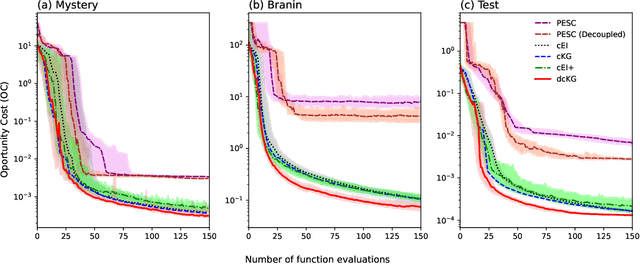
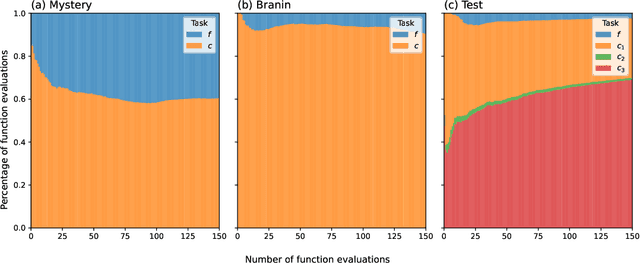
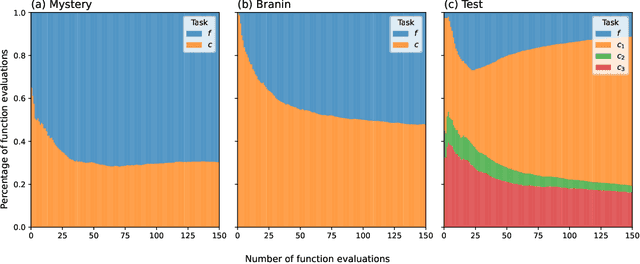
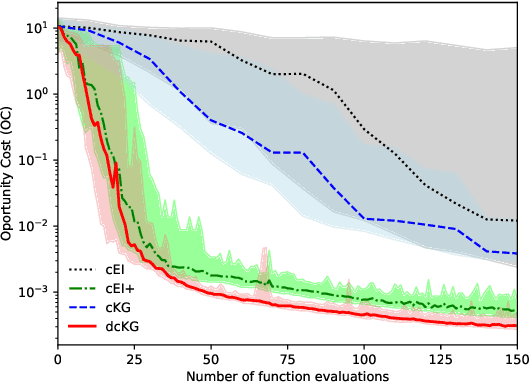
Abstract:Bayesian optimisation has proven to be a powerful tool for expensive global black-box optimisation problems. In this paper, we propose new Bayesian optimisation variants of the popular Knowledge Gradient acquisition functions for problems with \emph{decoupled} black-box constraints, in which subsets of the objective and constraint functions may be evaluated independently. In particular, our methods aim to take into account that often only a handful of the constraints may be binding at the optimum, and hence we should evaluate only relevant constraints when trying to optimise a function. We empirically benchmark these methods against existing methods and demonstrate their superiority over the state-of-the-art.
Efficient computation of the Knowledge Gradient for Bayesian Optimization
Sep 30, 2022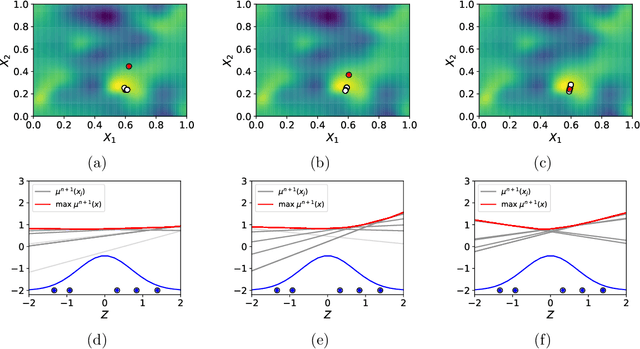

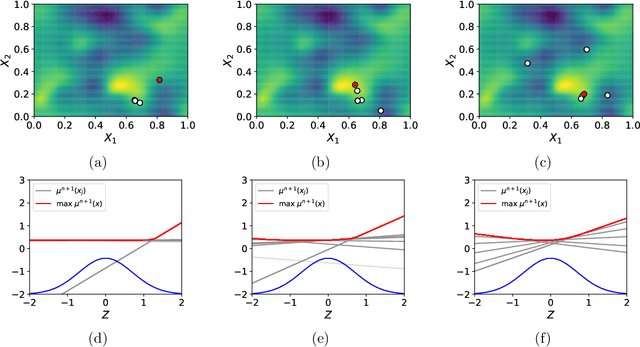
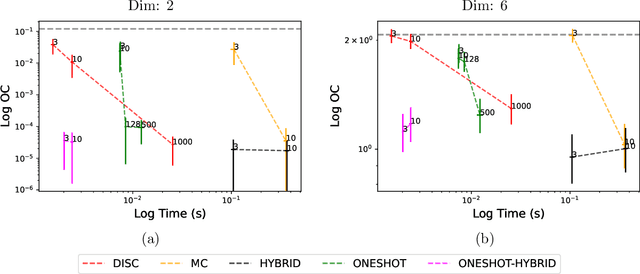
Abstract:Bayesian optimization is a powerful collection of methods for optimizing stochastic expensive black box functions. One key component of a Bayesian optimization algorithm is the acquisition function that determines which solution should be evaluated in every iteration. A popular and very effective choice is the Knowledge Gradient acquisition function, however there is no analytical way to compute it. Several different implementations make different approximations. In this paper, we review and compare the spectrum of Knowledge Gradient implementations and propose One-shot Hybrid KG, a new approach that combines several of the previously proposed ideas and is cheap to compute as well as powerful and efficient. We prove the new method preserves theoretical properties of previous methods and empirically show the drastically reduced computational overhead with equal or improved performance. All experiments are implemented in BOTorch and code is available on github.
One Step Preference Elicitation in Multi-Objective Bayesian Optimization
May 27, 2021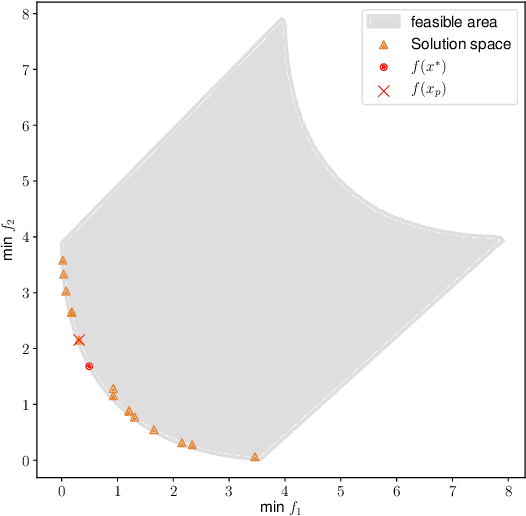
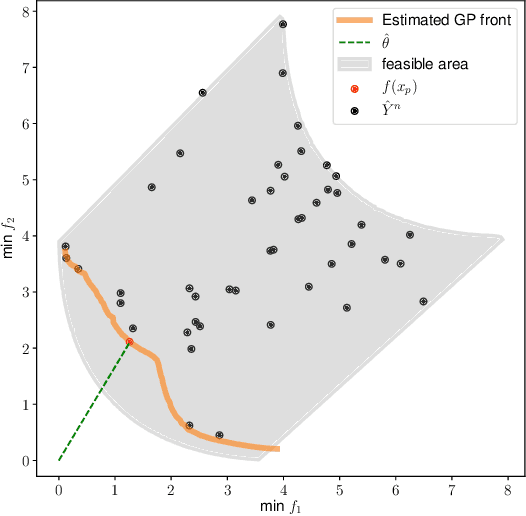
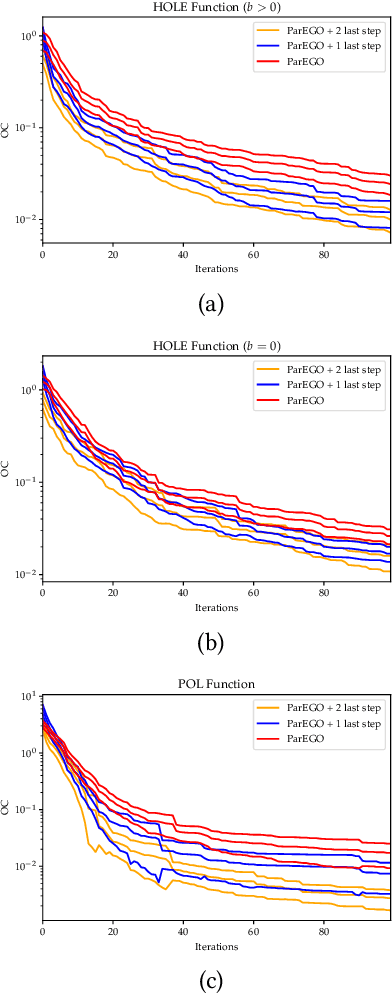
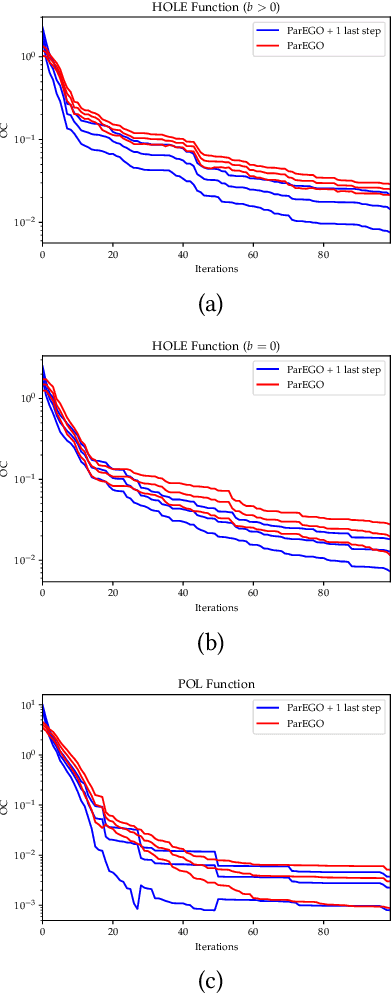
Abstract:We consider a multi-objective optimization problem with objective functions that are expensive to evaluate. The decision maker (DM) has unknown preferences, and so the standard approach is to generate an approximation of the Pareto front and let the DM choose from the generated non-dominated designs. However, especially for expensive to evaluate problems where the number of designs that can be evaluated is very limited, the true best solution according to the DM's unknown preferences is unlikely to be among the small set of non-dominated solutions found, even if these solutions are truly Pareto optimal. We address this issue by using a multi-objective Bayesian optimization algorithm and allowing the DM to select a preferred solution from a predicted continuous Pareto front just once before the end of the algorithm rather than selecting a solution after the end. This allows the algorithm to understand the DM's preferences and make a final attempt to identify a more preferred solution. We demonstrate the idea using ParEGO, and show empirically that the found solutions are significantly better in terms of true DM preferences than if the DM would simply pick a solution at the end.
Bayesian Optimisation for Constrained Problems
May 27, 2021
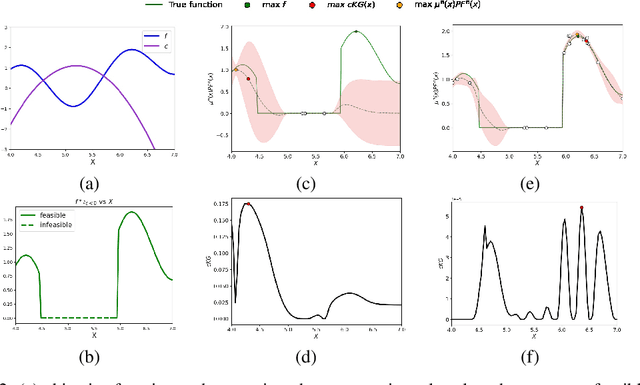
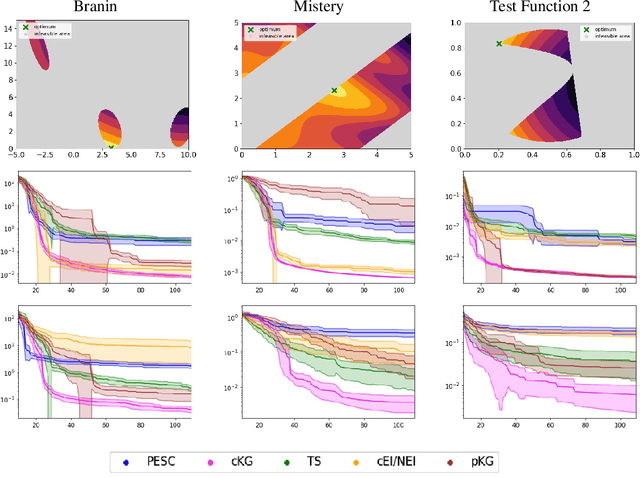
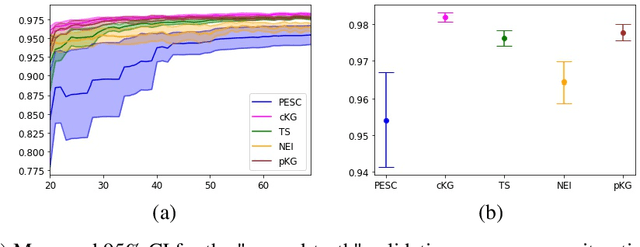
Abstract:Many real-world optimisation problems such as hyperparameter tuning in machine learning or simulation-based optimisation can be formulated as expensive-to-evaluate black-box functions. A popular approach to tackle such problems is Bayesian optimisation (BO), which builds a response surface model based on the data collected so far, and uses the mean and uncertainty predicted by the model to decide what information to collect next. In this paper, we propose a novel variant of the well-known Knowledge Gradient acquisition function that allows it to handle constraints. We empirically compare the new algorithm with four other state-of-the-art constrained Bayesian optimisation algorithms and demonstrate its superior performance. We also prove theoretical convergence in the infinite budget limit.
Bayesian Optimisation vs. Input Uncertainty Reduction
May 31, 2020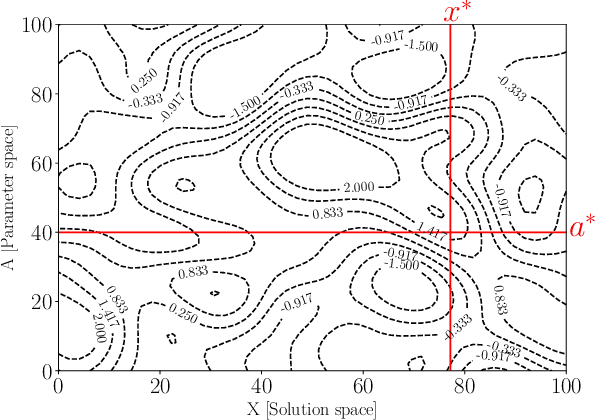
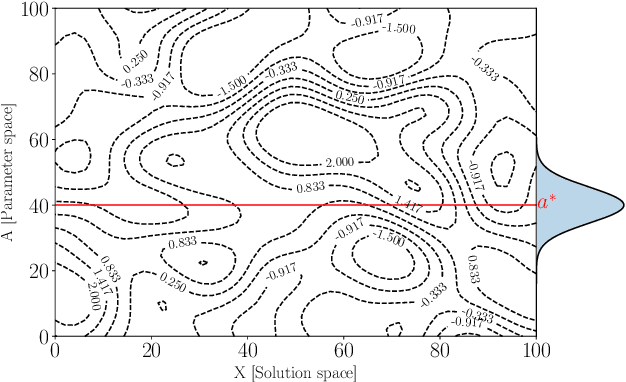
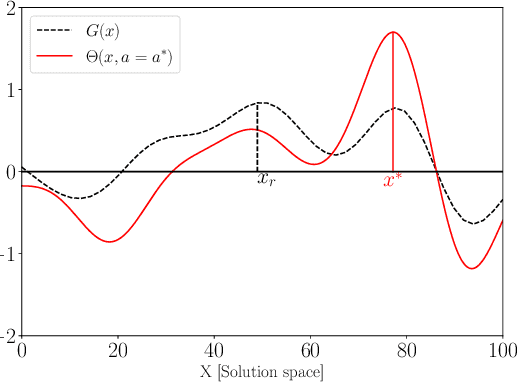
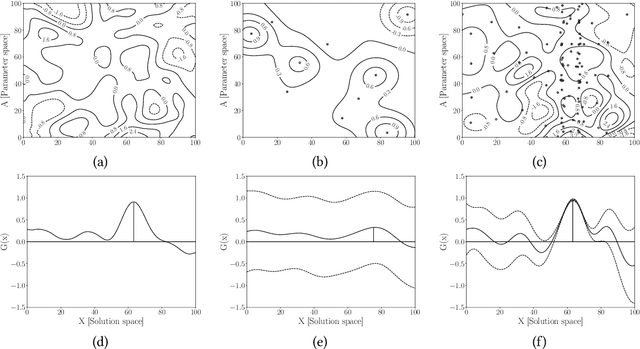
Abstract:Simulators often require calibration inputs estimated from real world data and the quality of the estimate can significantly affect simulation output. Particularly when performing simulation optimisation to find an optimal solution, the uncertainty in the inputs significantly affects the quality of the found solution. One remedy is to search for the solution that has the best performance on average over the uncertain range of inputs yielding an optimal compromise solution. We consider the more general setting where a user may choose between either running simulations or instead collecting real world data. A user may choose an input and a solution and observe the simulation output, or instead query an external data source improving the input estimate enabling the search for a more focused, less compromised solution. We explicitly examine the trade-off between simulation and real data collection in order to find the optimal solution of the simulator with the true inputs. Using a value of information procedure, we propose a novel unified simulation optimisation procedure called Bayesian Information Collection and Optimisation (BICO) that, in each iteration, automatically determines which of the two actions (running simulations or data collection) is more beneficial. Numerical experiments demonstrate that the proposed algorithm is able to automatically determine an appropriate balance between optimisation and data collection.
 Add to Chrome
Add to Chrome Add to Firefox
Add to Firefox Add to Edge
Add to Edge